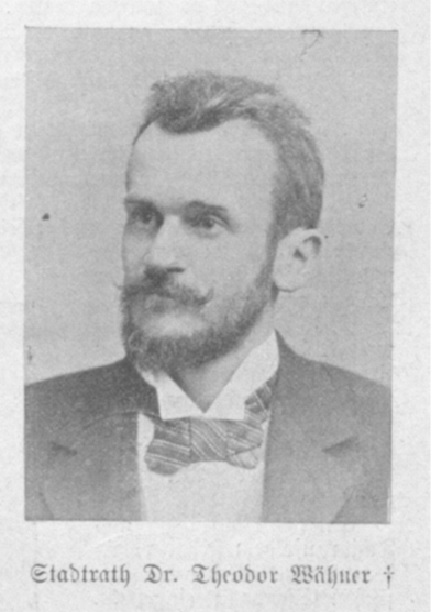Theodor Wähner (1864–1901)
As chief editor of the anti-Semitic 'Deutsche Zeitung' and Vienna district and city councillor from 1896 to 1901, Theoder Wähner was at the same time one of Vienna's most influential – and by his opponents best-hated – personalities around 1900. Nevertheless, his origin and biography were widely unknown among his contemporaries and have remained so in the historical literature. Include Wähner's close relatives, the project traces his roots in northern Bohemia and the Waldviertel region of Lower Austria, before his path – still in childhood – took him first to Vienna and then Salzburg. He later studied physics in Vienna and was then employed in insurance, taking him for a short time to Bucharest. Subsequently, the precipitouspolitical career of this person who had hitherto had been more or less a stranger to the public took off in 1894.
Above all, the project aims to shed light on Wähner's biography until that point. It reconstructs family networks and those extending beyond the family, follows the careers of minor state officials who temporarily slid into precarious conflicts with their superiors, detects the efforts of the educated middle-class and touches on the early beginnings of scientific archaeology in Austria. It traces the socialisation of a student from the ’provinces’ in Vienna, thus gaining insight into the frequently cramped living spaces and limited career prospects of the student and academic ’proletariat’. In addition, it offers insight into the reception of (radical) ideological-political ideas and the acceptance and (active) cultivation of contemporary literature, music and art. Hence, the project may also be able to illuminate some of the darker sides of the Viennese fin de siècle.
